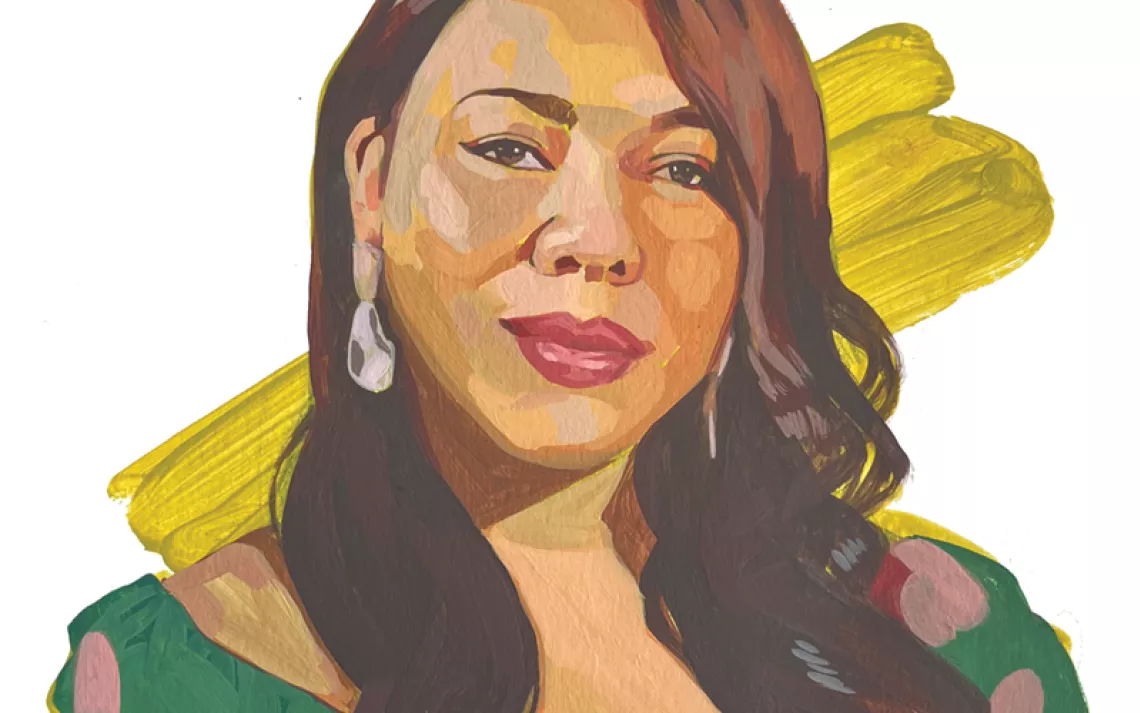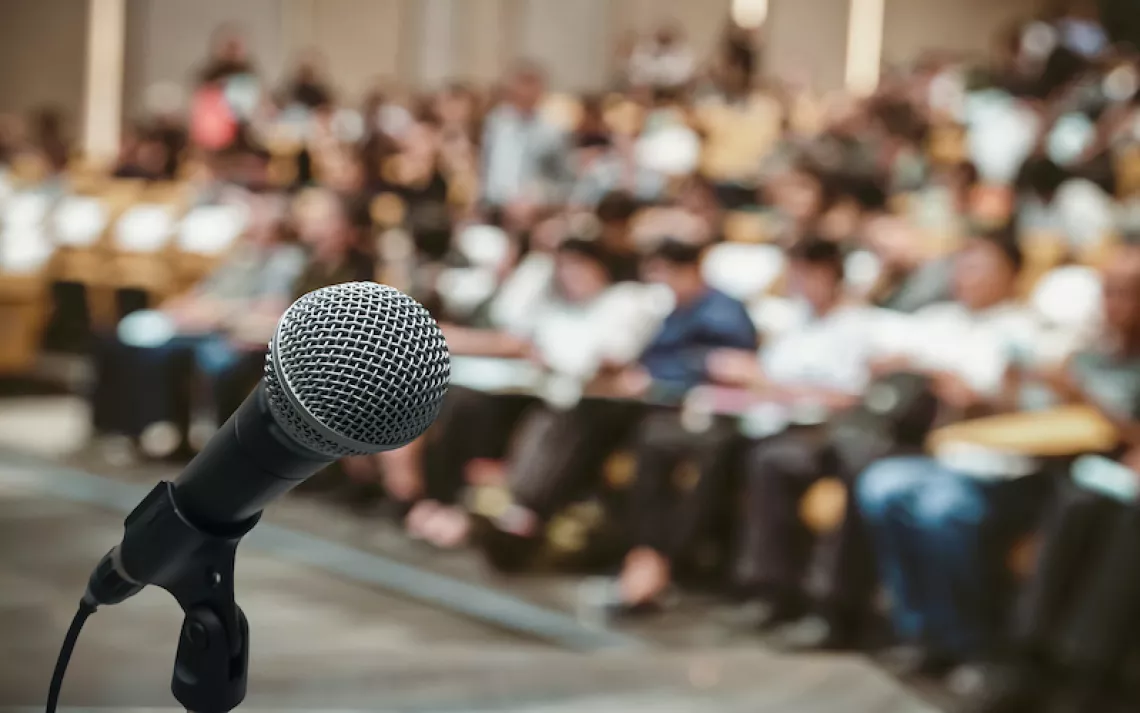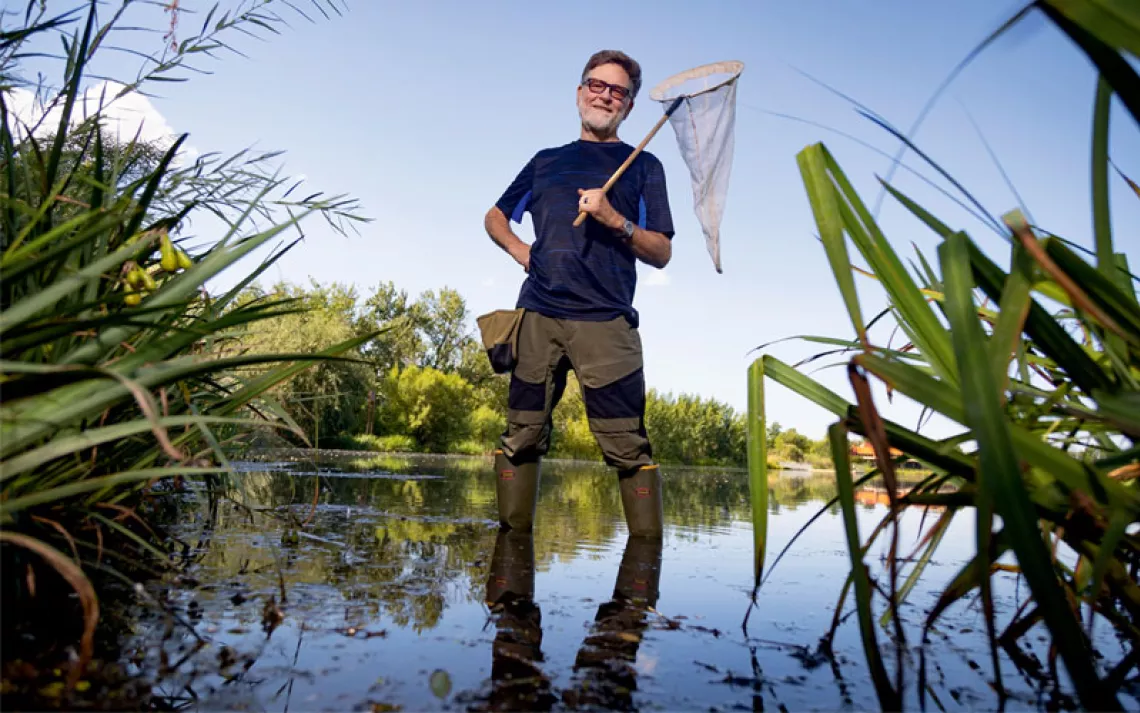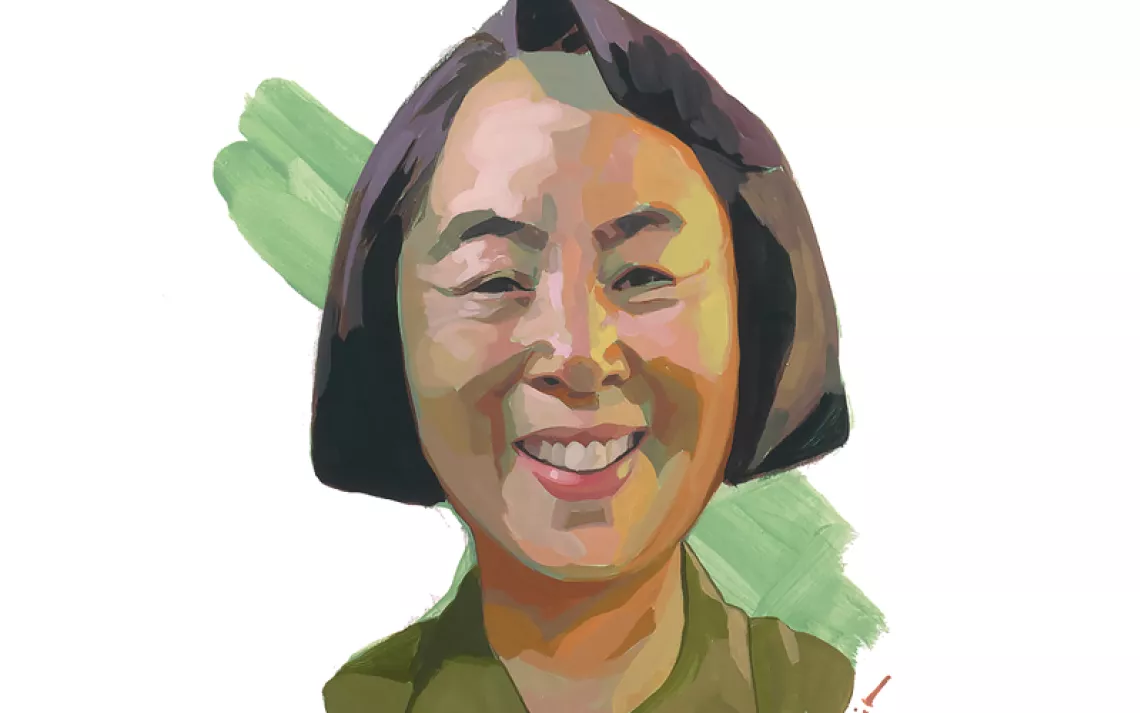The Environmental Movement Forges Ahead: A Conversation With Ramón Cruz
The former Sierra Club president discusses the challenges—and accomplishments—of his busy term during a pivotal time for the organization
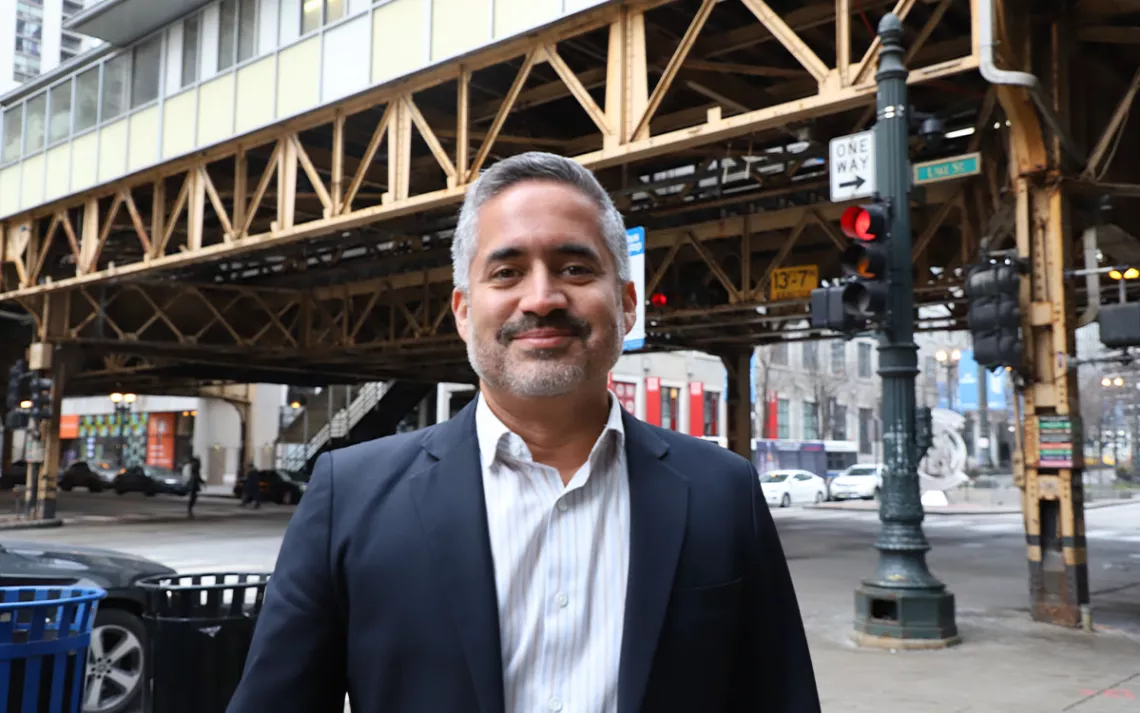
Ramón Cruz | Photo by Camila Rojas
When Ramón Cruz was elected the first Latino president of the Sierra Club in 2020, the organization was already grappling with its history of systemic racism. Over the course of his three-year term, conversations about diversity and inclusion at the Sierra Club only mounted. The organization faced a global pandemic, the murder of George Floyd, the Trump administration’s attacks on the environment, a gap in executive leadership, and a significant budget shortfall, all of which forced conversations about Sierra Club’s priorities. But Cruz also served during a time when the Biden administration passed the Inflation Reduction Act, one of the most monumental pieces of environmental legislation of our time.
Cruz’s advocacy work has been far from simple. In his final president’s report that was presented during a Sierra Club board meeting last May, he addressed concerns about whether the organization should be involved in social issues such as reproductive rights, or rather “stick to its lane.” But all progressive causes, including the environmental movement, are interconnected, he said in his speech. “I want to share the road of environmental advocacy with as many people as possible. I want you all to understand why it is important that Sierra Club’s lane in the environmental movement be broad enough to include people like me.”
During a conversation this fall, Cruz reflected on the challenges and accomplishments of his time as Sierra Club president and shared his hopes for the future of the organization. The following Q&A has been edited for clarity and length.
What inspired you to become a leader in the environmental movement?
When I was elected as the first Latino Sierra Club president, I would often be asked about my background. I usually think of my mother and my abuela, my grandmother, and how sustainable they lived—reusing margarine containers, planting at home, using the appropriate clothes for a season so that you don't have to use energy. There are a lot of things in my childhood and background that I can see as influences.
But when people ask me when I became an environmentalist, it’s interesting—I never really talk about that as much—but it was a defining moment during my college years. I was a student of the 20th-century social movements in Latin America, and I remember meeting this former guerrilla from Uruguay. She was talking about how frustrated she was about her generation and its quest for social change, and that it was led by leaders who were put on a pedestal. I remember her telling me if she were starting her career as I was at that moment, she would choose the environment as her cause because it was a leaderless movement where people embrace the cause rather than the celebrity. From there I started doing more activism. I was arrested in Vieques—that was the struggle in Puerto Rico to get the US Navy out of the small island in Puerto Rico’s archipelago—and I think that was a defining moment.
What does it mean to you to be the first Latino president of the Sierra Club?
I didn’t run for president thinking, “OK, I will be the first Latino president.” But I think it’s a reflection of how far our country has come—and at the same time, it’s shameful that I’m the first Latino in the 130 years of the Sierra Club’s history. But it’s part of a movement where voices that were not put at the center are now there. I said it many times when I was elected: The future is female and speaks Spanish. You can see, for example, how a person like Alexandria Ocasio-Cortez has become such a relevant voice—it’s a reflection of that. So, I do hope that even though I’m the first one, that there are more voices like this at the Sierra Club, and hopefully it will get to a point that it won’t matter. It's important that those voices become center stage.
What were some of the biggest challenges of your term as president?
During the period when I was president, there was a gap in executive leadership, and I started basically with the Covid-19 pandemic. That in itself was very rough, having people you know losing jobs, dying. And then came the murder of George Floyd. That was a huge turning point in the progressive movement in terms of civil rights and dealing with systemic racism. It also started an introspective journey that many institutions, especially legacy institutions like the Sierra Club, embarked on. We were able to use that to center equity and justice in a much more intentional way and to see the intersectionality of all these issues: voting rights, reproductive rights, human rights—all of those are also environmental rights.
Dealing with our club’s history and all the controversies it brought was another huge moment. That brought a lot of division, but also a lot of healing and a lot of understanding. And, you know, we had to deal with the economic downturn after Covid right after we had committed to chapter unionization. We're still dealing with the consequences of the latest round of layoffs, and even before that, we did a voluntary layoff program. That's one of the most difficult moments in anybody’s leadership.
What were some of the biggest accomplishments of your term as president?
Navigating through all of those issues was a big accomplishment in itself. Some people would say there hasn’t been a more difficult time for the Sierra Club in recent decades.
Transitioning the leadership was a big accomplishment too. For a while, we thought that it would have been difficult to find a new executive director given everything that was out there in the press, and I was very surprised—the quality of top candidates we got in that search was really impressive. So, it gives me hope that the environmental movement has so many qualified leaders to step in.
Probably the biggest accomplishment toward our club’s mission is helping elect perhaps the most progressive administration that we have had in terms of the issues we care about. I know that sometimes it feels frustrating, but to have something as ambitious as the Inflation Reduction Act—again, with all the limitations that we continue to fight—and centering justice with an initiative like Justice40, it’s part of our accomplishment. We should recognize that and celebrate it, in part thanks to our excellent federal policy team in Washington that fought so much for it.
You’ve been very vocal about advancing equity within the environmental movement. How do you reconcile the Sierra Club’s recent layoffs—half of which were people of color—with the organization’s racist history?
Even though that history of racism goes way, way back, one cannot overlook that that legacy is still with us. It's a journey. In an organization as complex as the Sierra Club, people go into that journey at different moments in time.
The Sierra Club has also become a more inclusive and diverse place, especially in recent years. The number of people of color who were part of those layoffs—not that I would be proud of any layoffs—also speaks to how diverse our staff had become. It’s not like we were targeting them; the board knew that this needed to happen. It has been misconstrued in the press as something very simplistic. The insinuation was that there was a concerted effort not to focus on equity, and it's quite the opposite. The Sierra Club was ahead of the game when we created the Equity Department. But then it became like a niche, like, “Oh, these people are the ones who deal with equity.” You really need to center equity in everything we do. Restructuring without the Equity Department doesn't mean that we're less committed to it. It’s how can we be sure that equity is in everything we do, and not the task of very specific people.
In a moment when there's so much division in society—and you could argue also division within the organization—finding common ground and an understanding of the tensions within the club, it's a lesson, and it’s a challenge, to look into the future. The Sierra Club has thrived for 130 years. We continue to be one of the most influential organizations. But we're no longer the only ones on the stage, and that's good, that's positive. What makes us unique is embracing those challenges or tensions, which is something that is necessary for the organization to continue.
What do you hope for the future of the Sierra Club now that your term has ended?
I’m hopeful, especially for someone like current Sierra Club president Allison Chin, who has been a unifying voice and who has served as president in the past. People have asked me to “give it a few more years” on the board and to “come back,” but no—I think it is designed, in a way, to renew our leadership. After serving on the board for six years, I think your job should be to bring in someone else to run and assume leadership. The organization will then have new people to confront those new challenges. Part of the whole reckoning with our past is a reflection of that; there’s new people with new ways of understanding the world, and this is their moment. I will still remain a part of the Sierra Club family as a volunteer, but it doesn’t serve well if I run again for the board or for other leadership if I’m taking all the space with my voice. What we need is a lot of doers.
I’m proud of my time in this consequential moment for the organization. One of the privileges of being in this position was meeting with Indigenous communities: spending time with them, listening and learning from them in their approach to sustainability and the whole notion of Seven Generations—the Haudenosaunee belief that you should plan for the seven generations ahead and also the seven generations before. If I think of the moment of time we are in right now, seven generations is basically the time since John Muir and a few others were starting the Sierra Club. They were by no means perfect, and I’m not sure what they would think of all the degradation we have caused, but I do know that we live in a more equitable world than they lived in. So, seven generations from now, I hope that many of the things we are coping with right now are behind us.
 The Magazine of The Sierra Club
The Magazine of The Sierra Club
